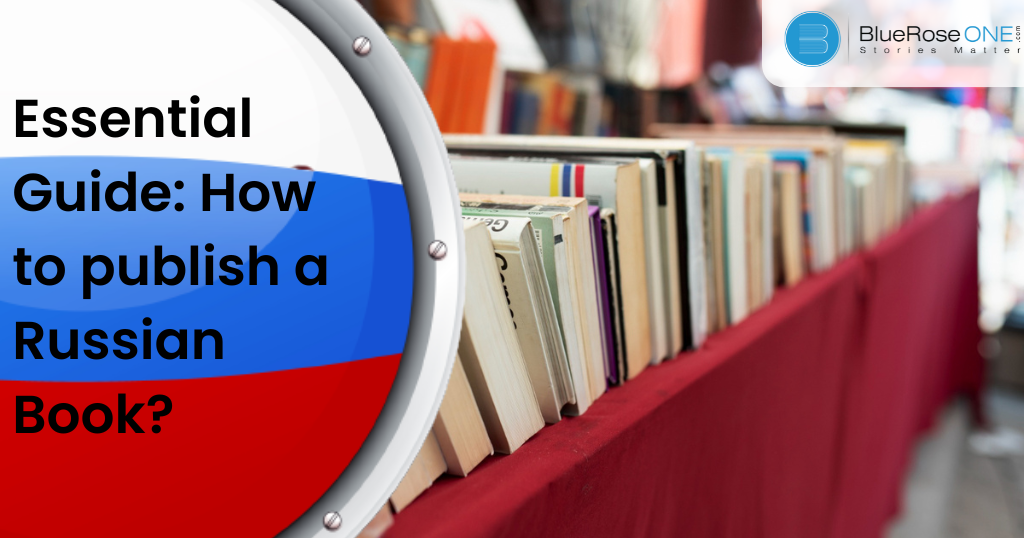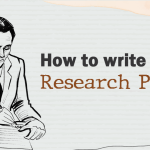Thinking to publish a Russian book? Russian dialect, Russian Russki yazyk, Russia’s primary state and cultural language. The Russian language, along with Ukrainian and Belarusian, forms the eastern branch of the Slavic family of languages. Russian is the primary language of the vast majority of Russians, and it is also used as a second language in other former Soviet republics. In the second half of the twentieth century, Russian was also widely taught in countries within the Soviet sphere of influence, particularly in Eastern Europe.
The Northern group (from St. Petersburg eastward across Siberia), the Southern group (in most of central and southern Russia), and the Central group are the three groups of Russian dialects (between Northern and Southern). Modern literary Russian is based on the Moscow Central dialect, which has the Northern dialect’s consonant system and the Southern dialect’s vowel system. However, the differences between these three dialects are smaller than those between most other European languages’ dialects.
Russian Language has been heavily influenced by Old Church Slavonic and, since Tsar Peter I the Great’s westernising policies in the 18th century, by the languages of Western Europe, from which it has borrowed many words. The 19th-century poet Aleksandr Pushkin had a significant impact on the language’s subsequent development. His writings, which combined colloquial and Church Slavonic styles, put an end to the considerable debate over which style of the language was best for literary purposes.
Russian literature history is divided into several periods, which can be quite long or quite short. There was no written language in Russia prior to the adoption of Christianity, first by Princess Olga in 957 and then by the Great Prince Vladimir in 988. For written communication, Greek, Latin, or Jewish languages were used as needed. Literary works such as fairy tales, songs, and epics were preserved and passed down from generation to generation as oral history monuments.
The Russian Enlightenment refers to eighteenth-century Russian literature. Lomonosov, Fonvizin, and Derzhavin, among others, were among the founders of Classicism in Russian poetry and prose. Their works are diverse and focused on literature, science, and other forms of art.
Read: 9 Best writer’s book cafes in Mumbai.
You may also read: Tone Examples in Literature: 15 Must-Know Types With Examples
The nineteenth-century Russian literature is regarded as the “golden age” of Russian literature. This is the time when masterpieces of Russian literature, history, and art first appeared on the international stage. Pushkin’s genius exemplifies this golden age for Russians. Pushkin, who wrote in all literary genres—narrative poem, lyric, tragedy, short story, novel, travelogue, and history—was the first to use everyday Russian language in literary work, and he was the first to explore many of Russian literature’s major themes.
Griboedov, Lermontov, and Gogol, as well as their heirs Turgenev, Dostoevsky, Tolstoy, and Chekhov, form the links in this golden literary chain. Their works have rightfully gone down in history as world literature classics.
The “silver age” of Russian literature dates from 1890 to 1921, a time of great turmoil, war, and revolution. During this turbulent period, however, Russian poetry flourished, and daring experiments in all forms of art took place. Blok and Briusov, Gumilev and Akhmatova, Tsvetaeva and Mayakovsky, Esenin and Gorky, Bunin and Kuprin are the most prominent representatives of silver age literature.
Famous novels published by Russian Book Publishers-
Title: The Brothers Karamazov by Fyodor Dostoevsky
About Book: Fyodor Dostoevsky?s final work, The Brothers Karamazov, is arguably one of the best novels ever written in any language. Set in 19th-century Russia, the novel was published as a serial in The Russian Messenger from January 1879 to November 1880.The story revolves around the murder of Fyodor Pavlovitch Karamazov the father of the Karamazov brothers a debauched man who leads a hedonistic life and excels in the art of seducing women.A spiritual drama of sorts, the story of Fyodor and his three sons from different wives, embodies Dostoevsky?s philosophy and delves into debates on morality, free will and God.Dostoevsky?s hero Alyosha was named after his own son who died of epilepsy at the age of three in 1878.The qualities that Dostoevsky admired in his son are reflected in the eponymous character, created and developed as a cathartic process.Dostoevsky died less than four months after the publication of The Brothers Karamazov. Constance Garnett?s English translation of the novel was released in 1912.It is believed that a copy of The Brothers Karamazov was found next to Leo Tolstoy?s nightstand when he died.
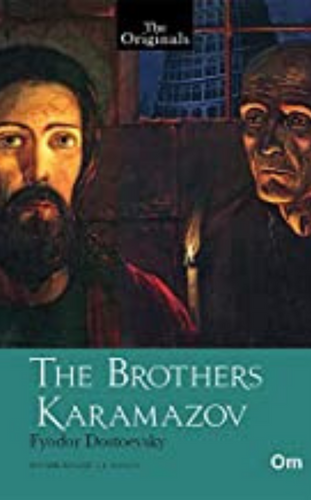
Books published by Russian Book Publishers
Title: A Hero of Our Time by Mikhail Lermontov
About book: A masterpiece of Russian prose, Mikhail Lermontov’s A Hero of Our Time is translated with an introduction and notes by Natasha Randall, and a foreword by Neil LaBute, author of reasons to be pretty, in Penguin Modern Classics. The first major Russian novel, A Hero of Our Time was both lauded and reviled on publication. Its Byronic hero, twenty-five-year-old Pechorin, is a beautiful and magnetic but nihilistic young army officer, bored by life and indifferent to his many sexual conquests. In five linked episodes, Lermontov builds up a portrait of a man caught in and expressing the sickness of his times. Chronicling his unforgettable adventures in the Caucasus involving brigands, smugglers, soldiers, rivals, and lovers, this classic tale of alienation influenced Leo Tolstoy, Fyodor Dostoyevsky and Anton Chekhov, holding up a mirror not only to Lermontov’s time but also to our own.Mikhail Lermontov (1814-41) was a Russian Romantic writer and poet. As a young man Lermontov was an officer in the guards, and was sent to fight in the Caucasus after insulting the Tsar. His dramatic life ended after being shot down in a duel.Ifyou enjoyed A Hero of Our Time, you might like Andrei Bely’s Petersburg, also available in Penguin Clasics.’One of the most vivid and persuasive portraits of the male ego ever put down on paper’Neil LaBute, from the Foreword.
You may also like: Tone Examples in Literature: 15 Must-Know Types With Examples
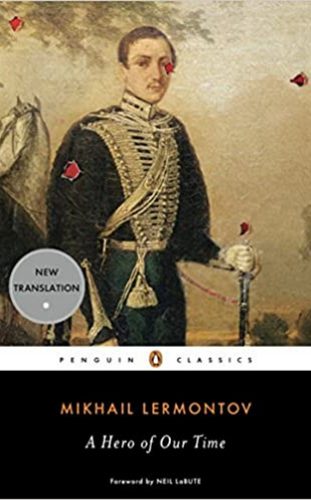
Books published by Russian Book Publishers
Title: The Twelve Chairs by Ilf and Yevgeny Petrov
About Book: Знаменитый роман-фельетон И. Ильфа и Е. Петрова “Двенадцать стульев” – одно из культовых произведений русской литературы ХХ века. Захватывающая история о приключениях двух аферистов Остапа Бендера и Ипполита Воробьянинова в поисках сокровищ мадам Петуховой – бриллиантов, запрятанных в одном из 12-ти стульев, за которыми и устроили настоящую охоту главные герои.
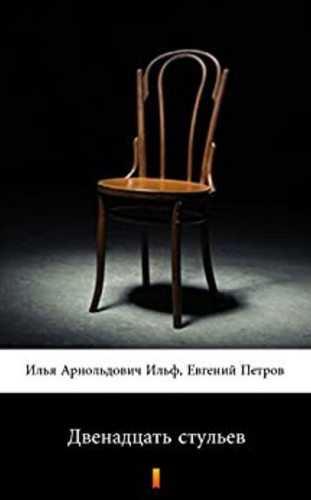
Books published by Russian Book Publishers
Title: The Gift by Vladimir Nabokov
About Book: The Gift is the phantasmal autobiography of Fyodor Godunov-Cherdynstev, a writer living in the closed world of Russian intellectuals in Berlin shortly after the First World War. This gorgeous tapestry of literature and butterflies tells the story of Fyodor’s pursuits as a writer. Its heroine is not Fyodor’s elusive and beloved Zina, however, but Russian prose and poetry themselves.
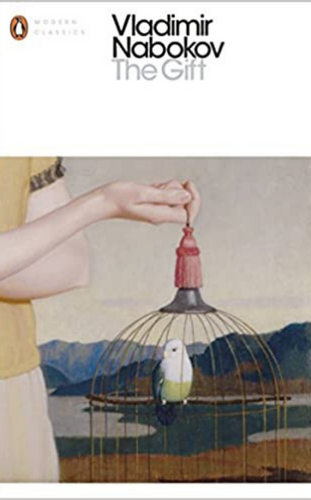
Books published by Russian Book Publishers
Title: One Day in the Life of Ivan Denisovich by Aleksandr Solzhenitsyn
About Book: Bringing into harsh focus the daily struggle for existence in a Soviet gulag, Aleksandr Solzhenitsyn’s One Day in the Life of Ivan Denisovich is translated by Ralph Parker in Penguin Modern Classics. This brutal, shattering glimpse of the fate of millions of Russians under Stalin shook Russia and shocked the world when it first appeared. Discover the importance of a piece of bread or an extra bowl of soup, the incredible luxury of a book, the ingenious possibilities of a nail, a piece of string or a single match in a world where survival is all. Here safety, warmth and food are the first objectives. Reading it, you enter a world of incarceration, brutality, hard manual labour and freezing cold – and participate in the struggle of men to survive both the terrible rigours of nature and the inhumanity of the system that defines their conditions of life. Though twice-decorated for his service at the front during the Second World War, Aleksandr Isayevich Solzhenitsyn (1918-2008) was arrested in 1945 for making derogatory remarks about Stalin, and sent to a series of brutal Soviet labour camps in the Arctic Circle, where he remained for eight years. Released after Stalin’s death, he worked as a teacher, publishing his novel One Day in the Life of Ivan Denisovich with the approval of Nikita Khrushchev in 1962, to huge success. His 1967 novel Cancer Ward, as well as his magnum opus The Gulag Archipelago, were not as well-received by Soviet authorities, and not long after being awarded the Nobel Prize for literature in 1970, Solzhenitsyn was deported from the USSR. In 1994, after twenty years in exile, Solzhenitsyn made his long-awaited return to Russia. If you enjoyed One Day in the Life of Ivan Denisovich, you might also like Yevgeny Zamyatin’s We, available in Penguin Classics. ‘It is a blow struck for human freedom all over the world … and it is gloriously readable’ Sunday Times
You may also like: Realistic Fiction: Definition, Key Elements and Examples
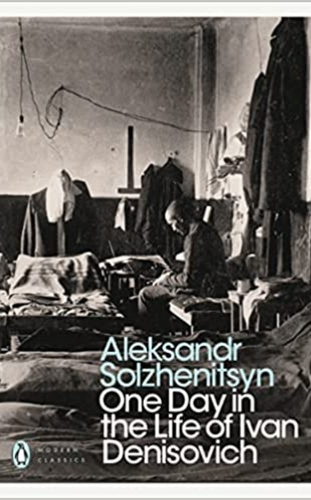
Books published by Russian Book Publishers
It is never easy to write in a second language, but choosing a difficult language like Russian makes the task even more difficult. Should you be put off by this? Certainly not!
You can realise your dream of writing a fiction narrative with a positive attitude, determination, and helpful ideas. If you have a fantastic story in mind and want to put it on paper, you’ll be ready to embark on this fantastic journey.
Read: Step by Step guide to create a book selling author website.
Writing is one of the most important jobs – sometimes it is natural for you to lose motivation or the creative will to write. It is natural and human to be happening. During these times, read as much as you can to grasp a thought which you give you inspiration. Watch movies, listen to music, and just relax; don’t force yourself to write.
A few tips and tricks that will help you publish a Russian Book-
- Figure out the services you’ll need.
You should be aware of the services you’ll need, such as editing and proofreading. You will need translation services if you are writing your book in English. - Make a list of publishing houses while keeping in mind your target demographic.
Determine which publishing houses will best meet your needs. Conduct research on the publishing house you intend to utilise. There are a million publishing houses – global or Russian Publishing houses, but you must consider which ones would suit you and your budget. Collect information about several publishing houses that support and recognise the importance of your narrative. Reduce it to the top three. - Compare and choose.
Compare the publishing houses on your short list to choose one that meets all of your requirements. Choose a publishing business that can meet all of your specific service needs. - Begin the publishing process.
You can begin the process of publishing your dream project once you’ve decided on a publishing business. It is necessary to collaborate with the publishing staff. - Marketing and promotion.
Once your book is published, market it to your target demographic. Make sure your intended audience understands what your book is about and why they should read it.
BlueroseONE assists emerging writers towards being noticed in both national and international markets. We publish in regional and worldwide languages and provide a variety of adaptable services in this regard.

